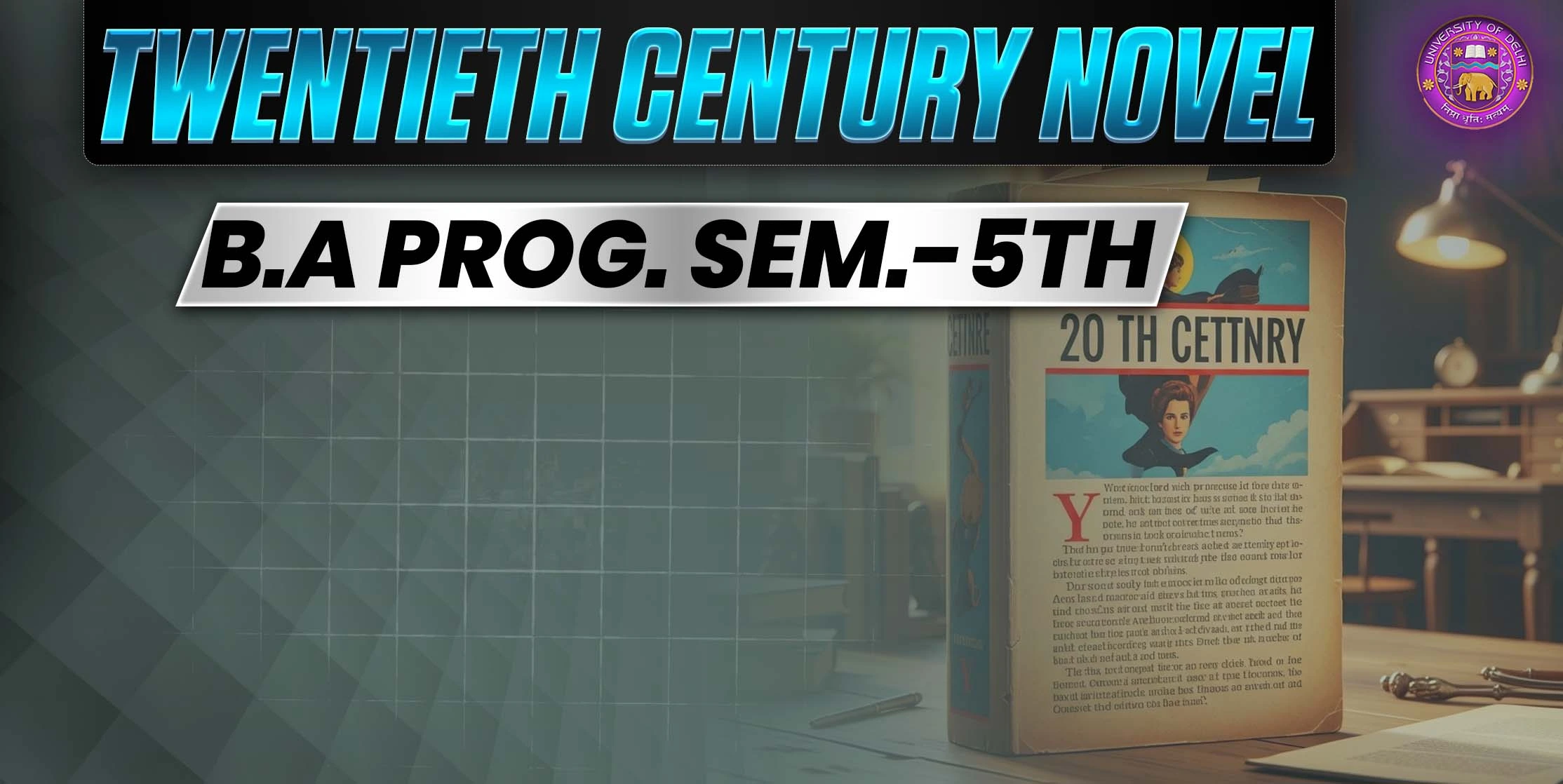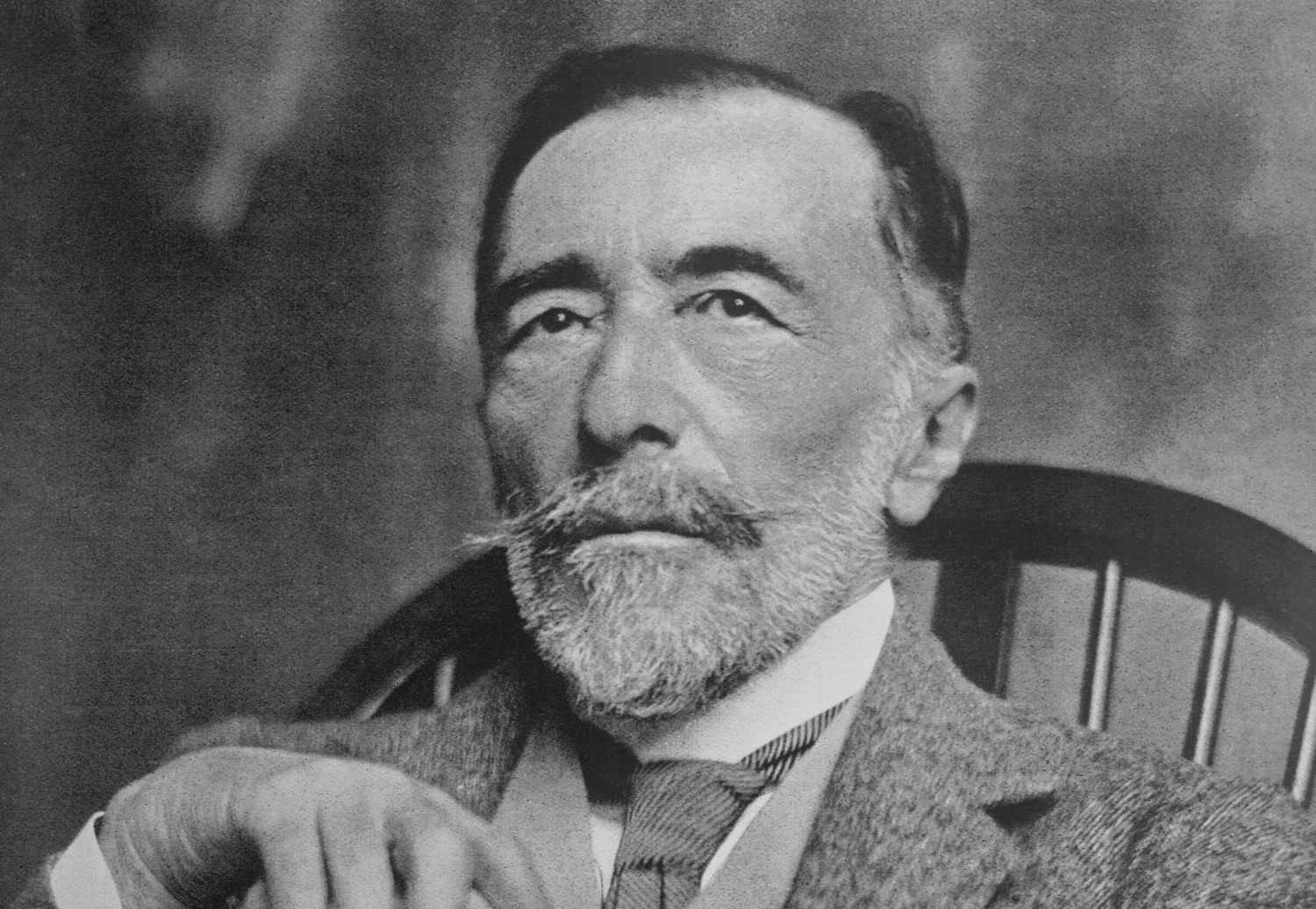Answer - Introduction
Heart of Darkness is a novella written by Joseph Conrad, first published in 1899. The story follows Marlow, a sailor who takes a journey up the Congo River in Africa, where he witnesses the dark and brutal side of European imperialism. The central figure in the story is Mr. Kurtz, an ivory trader who has become powerful but corrupt deep in the African jungle. Through Marlow’s experiences, the novella explores themes of greed, colonial exploitation, and the thin line between civilization and savagery. The title itself symbolizesthe moral and spiritual darkness of imperialism, as well as the darkness within the human soul. Heart of Darkness is considered a classic for its deep, thought-provoking portrayal of human nature and society.
About The Author

Joseph Conrad was a Polish-born author, born on December 3, 1857. His family faced hardships due to his father's involvement in a rebellion against Russian rule, leading to their exile. After losing his parents, Conrad was raised by his uncle but dreamed of a life at sea. At seventeen, he left Poland for Marseilles and worked in the French and later British merchant navy, eventually becoming a captain. Conrad wrote thirty-one books, including notable novels like Lord Jim and Nostromo, exploring themes of adventure and human nature.
The Historical Context of European Imperialism Shapes the Narrative and Themes in Heart of Darkness :
In Heart of Darkness by Joseph Conrad, the historical context of European imperialism greatly influences the story and its themes. During the late 19th century, many European countries were expanding their empires, especially in Africa, which they viewed as a place to exploit for resources and spread their culture.
1. Imperialism as Exploitation:
- The 19th century was marked by European imperialist expansion, where powerful European nations colonized weaker territories. This process involved the exploitation of the colonized land and people for their resources.
- In Heart of Darkness, this exploitation is portrayed through the journey into Africa, where the European characters, particularly those working for companies,extract
resources like ivory.
- The character of Mr. Kurtz, who works for the European trading company, represents the extreme end of this exploitation. Kurtz collects vast amounts of ivory from the African people, often through cruel methods, demonstrating the brutal realities of imperialism.
2. Justification of Imperialism with Morality:
- Europeans tried to justify their colonization on moral grounds, claiming that they were bringing civilization, culture, and religion to the “uncivilized” people of Africa.
- In the novella, this moral justification is seen when the Europeans claim they are "civilizing" the Africans. However, the reality is different, as the Africans are
subjected to violence, oppression, and exploitation.
For instance, Kurtz is initially depicted as a great man with noble intentions; however, as the story progresses, it becomes evident that he regards the Africans as inferior beings,
exploiting them for his own benefit.
3. Scramble for Africa and the Congo Free State :
- By the late 19th century, European powers were racing to colonize Africa. In the
"scramble for Africa," nations like Belgium, under King Leopold II, took control of regions like the Congo.
- The exploitation of the Congo is directly reflected in Heart of Darkness. King Leopold II’s actions in the Congo, especially the brutal extraction of rubber and ivory, were conducted under the guise of bringing civilization to Africa. In the novella, European traders and officials in the Congo similarly assert that they are aiding the African people while, in reality, they are exploiting them for profit.
4. The Role of Stanley and Leopold II :
- Henry Morton Stanley’s exploration of the Congo sparked the interest of King Leopold II, who eventually turned the region into his personal colony. Leopold’s Congo Free State was marked by extreme exploitation, particularly in the collection of rubber and ivory, leading to the suffering of millions of Africans.
- In Heart of Darkness, the "Company" for which Marlow works is loosely based on the European companies that operated in the Congo under Leopold’s rule. The agents of the Company, like Kurtz, are portrayed as brutal exploiters who, under the guise of bringing civilization, use the African people for personal profit. At the end of his life, Kurtz’s cry, “The horror! The horror!”
- These final words are significant as they reveal Kurtz’s ultimate realization of the
darkness within himself and the brutal consequences of his actions. As a man who initially embraced European ideals of "civilizing" Africa, Kurtz becomes consumed by the very darkness he sought to eradicate, descending into a state where he exploits and brutalizes the native people for his own gain.
5. The Civilizing Mission :
- European imperialists often claimed they were on a "civilizing mission," bringing progress and development to the so-called barbaric regions of Africa.
- This theme is explored in the novel when Marlow reflects on the idea of bringing "light" to the "dark" interior of Africa. However, as the story progresses, it becomes clear that the "light" of civilization is a false promise, and instead, the Europeans bring death, suffering, and destruction to the native people.
- The character of Kurtz embodies this false civilizing mission. He sets out with grand ideals of helping the African people, but he becomes corrupted by power and greed, treating the Africans as mere tools for his own success.
6. Hypocrisy of European Imperialism:
- In Heart of Darkness, Marlow is deeply disturbed by the hypocrisy of the imperialists he encounters. He sees how they hide behind noble-sounding ideals while committing horrific acts of violence and oppression. The novel critiques the way Europeans presented themselves as saviors while destroying the lands and lives of the people they colonized.
Conclusion
Heart of Darkness uses its narrative to expose the dark side of European imperialism.
The novel critiques the moral hypocrisy, greed, and cruelty behind the imperialist expansion into Africa, challenging the idea that European colonization was a noble
endeavor. Through its portrayal of characters like Kurtz and Marlow's journey into the
Congo, Conrad reveals the harsh realities of colonial exploitation and the devastating
impact it had on the African people.
Click Here For Full Notes


